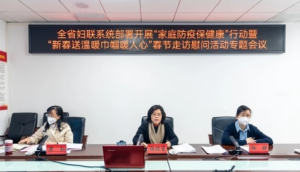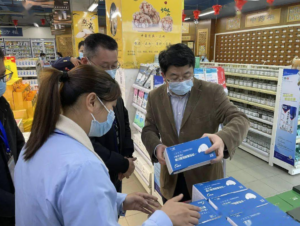
New crown rescue and treatment to protect the good medicine equipped
The four-day negotiation of the 2022 national medical insurance drug catalog came to an end in Beijing on January 8. The person in charge of the Department of Pharmaceutical Management of the National Health Insurance Bureau responded to the negotiation of neo-crown therapeutic drugs, saying that a total of three neo-crown therapeutic drugs entered the negotiation, among which Azivudine tablets and clear lung detoxification granules were successfully negotiated and Pfizer nematovir tablets/ritonavir tablets combination package (referred to as Paxlovid) was unsuccessful due to high quotation.
Azivudine is one of the three anti-new coronavirus small molecule drugs that have been approved for marketing in China. Professor Shi Yi of Jinling Hospital affiliated to Nanjing University School of Medicine said, “The application of antiviral drugs such as Azivudine is hoped to treat light and common type patients effectively while reducing their tendency to progress to heavy disease, thus reducing the disease and death rate. Better outcomes can be achieved with early treatment.”
Now, Azulfidine tablets and lung detoxification granules are included in the national medical insurance drug catalog after this negotiation, which means a richer variety of drugs for the treatment of neocoronavirus infection reimbursed by medical insurance and a lighter cost burden for patients. The data shows that up to now, there are more than 600 kinds of drugs for the treatment of fever, cough and other symptoms of neo-coronavirus in the national medical insurance drug catalog. It should be said that patients have a large choice.
As for the unsuccessful negotiation of Paxlovid into the medical insurance catalog, it is somewhat regrettable, but not necessarily incomprehensible. The purpose of medical insurance negotiations is to better play the role of the government on the basis of adhering to market-determined prices and respecting the autonomy of enterprises in pricing, and to guide enterprises to set drug prices openly, transparently and reasonably so that patients can afford the drugs, while not disregarding the affordability of medical insurance funds.
This health insurance negotiation is over, and our struggle with the new coronavirus continues.
On January 9, the State Council joint prevention and control mechanism held a press conference, the National Health Commission spokesman Mi Feng introduced, at present, medical treatment is the top priority for the prevention and control of the new crown epidemic. To this end, to promote the upgrading and expansion of medical resources, to ensure that good equipment and facilities and drugs are equipped, and to do a good job of human resource allocation and staff training.
Undoubtedly, to promote the upgrading and expansion of medical resources, drug stockpiling is a key point.
Although there is no specific drug for the new coronavirus infection, experts generally believe that there are still some drugs that can alleviate the symptoms of high-risk people during the golden time period for treatment, thus significantly reducing the mortality rate.
Such drugs, whether open supply, fully meet the needs of patients, is obviously the key to “health care, prevention of serious illness” work.
As to whether these drugs can enter the health insurance, of course, is a matter of great concern to the public, but it must be clear, can enter the health insurance is certainly all happy, even if not, does not mean that there is no room for force. As long as the effect is recognized, some drugs even if not into the health insurance, but there may still be a lot of demand in the market, and not even lack of black market rush to buy the chaos. Whether these needs can be met is also a test for government departments.
In view of this, Shen Hilly, an administrative law scholar and professor at Peking University School of Law, recently suggested in a media interview that two things should be done: first, to guarantee the import of effective drugs, and in emergency situations where human lives are at stake, corresponding emergency procedures should be adopted for drug imports; second, in the case of a shortage of drug supply, government departments should strengthen communication and contact with domestic and foreign enterprises to speed up import, production and supply.
Striving to supply the best drugs and vaccines for public use, the relevant departments have been working hard.
A good news is that in the policy interpretation of the “New Crown Therapeutic Drug Price Formation Guidelines (for Trial Implementation)”, the National Health Insurance Bureau recently proposed that the new crown therapeutic drugs are mainly innovative drugs, and the health insurance department actively supports the innovative development of pharmaceutical enterprises and encourages them to speed up their R&D and production. This means that in the future, there will be more new crown treatment drugs to accelerate the market.


Average Rating